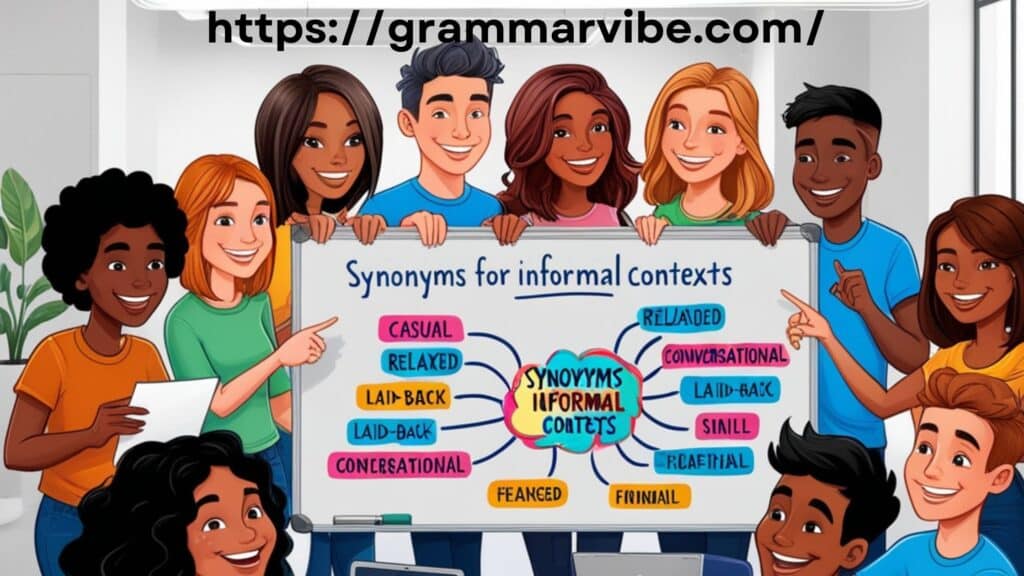In writing, particularly when crafting resumes, professional emails, or reports, phrases like “play an important role” come up often. Yet, repeating the same phrase can make writing sound flat. Instead, using a range of expressions to convey key contributions makes content more dynamic.
We have a guide with unique synonyms for “play an important role,” each with specific examples to help you use them naturally, whether in formal settings or informal chats.
Why Use Synonyms for “Play an Important Role”?
Switching up this common phrase doesn’t just improve readability; it shows an appreciation for the impact of someone’s work. Each synonym here conveys a slightly different tone, letting you highlight importance more effectively.
This article includes:
- Formal and informal synonyms for various contexts like business emails, resumes, and casual discussions.
- Scenario-based examples to make your writing more engaging.
- A summary table of all synonyms for quick reference.
Synonyms for Formal Contexts

1. Be Instrumental
When you want to emphasize someone’s expertise or skill, “be instrumental” is perfect for formal contexts like performance reviews or project summaries.
Example in a Performance Review:
“Anna has been instrumental in implementing our latest CRM system, which has increased efficiency by 30%.”
Why Use It?
It suggests that without this person’s contributions, the task wouldn’t have been as successful, indicating they were the driving force behind the achievement.
2. Be a Key Contributor
A great choice for resume language and official documents, “be a key contributor” shows that the individual has a strong influence on project success.
Example in a Recommendation Letter:
“Mark was a key contributor to our product launch, leading his team to surpass projected goals.”
Why Use It?
This phrase highlights the person’s unique impact in team settings and shows they were not just involved, but essential to success.
3. Be Pivotal
For moments when a person’s efforts made the difference, “be pivotal” adds emphasis on their importance. It’s excellent for project reports or formal emails.
Example in a Project Update Email:
“Jessica’s leadership was pivotal in navigating unexpected challenges.”
Why Use It?
This phrase implies that their actions were a turning point, crucial for overcoming hurdles.
4. Be Central
When a person’s involvement sits at the core of a project, “be central” fits well. It works in both formal and semi-formal environments.
Example in an Email to Stakeholders:
“Our success was largely due to Daniel’s central role in coordinating logistics.”
Why Use It?
Using “central” hints that their contributions formed the foundation of the outcome.
More for you: Other Ways to Say “Looking Forward to Working With You”
Synonyms for Informal Contexts

1. Be a Key Player
An ideal phrase for informal team meetings or group chats, “be a key player” is friendly and motivating, perfect for giving credit in a casual way.
Example in a Team Huddle:
“Sarah, you’ve been a key player in getting us here—thank you!”
Why Use It?
This phrase celebrates teamwork and shows appreciation without too much formality.
2. Be Central
For low-key settings where someone’s presence or work is crucial, “be central” keeps things informal yet appreciative.
Example in an Appreciation Message:
“Matt, your efforts were central to us hitting our target early.”
Why Use It?
This phrase recognizes value while maintaining a casual tone.
3. Be Essential
“Be essential” is a versatile phrase that emphasizes the person’s indispensable role.
Example in a Friendly Team Message:
“Claire, your role has been essential to keeping our team on track.”
Why Use It?
This expression is heartfelt and direct, capturing the importance of their work without sounding too formal.
4. Be a Major Factor
If someone’s work heavily influenced an outcome, “be a major factor” says it all. Great for informal acknowledgments with an element of praise.
Example in an Informal Project Recap:
“Your research was a major factor in winning the client’s trust.”
Why Use It?
This phrase communicates the weight of their significant contributions.
You might also like: Nicholas’ or Nicholas’s
How to Use These Synonyms in Real-Life Situations
Now, let’s put everything together. Here are examples for emails, resumes, and casual exchanges that demonstrate how to naturally insert these synonyms and adjust for tone and context.
Email Examples
Formal Email Using “Be Instrumental”
Subject: Acknowledging Your Contributions
“Hi Laura,
I wanted to personally recognize your role in our recent project. Your insights and strategic thinking were truly instrumental in delivering results ahead of schedule. I look forward to seeing what we can achieve together in future projects.”
Casual Email Using “Be a Key Player”
Subject: Fantastic Job on the Presentation!
“Hey Tom,
Thanks a ton for stepping up during yesterday’s presentation. You’ve been such a key player in our project, and it wouldn’t be the same without your input.”
Resume Example Using “Be a Key Contributor”
Experience:
- Project Lead, Marketing Initiatives
Led a cross-functional team on a national ad campaign, where I was a key contributor in achieving a 25% increase in brand awareness.
Check out this: Kid’s or Kids’ or Kids
Scenario Example Using “Be Central” in a Team Recap
“Team, I want to highlight how Sam’s quick problem-solving skills were central to keeping us on track. Great job, Sam!”
This completes a rich exploration of synonyms for “play an important role” across different settings, from formal contexts to casual conversations. Remember, the language we choose can elevate both our writing and the message we deliver. Using these phrases, you’ll have a solid foundation to articulate importance with variety and vitality.
By incorporating this table of synonyms and examples, you’re now ready to acknowledge contributions effectively and confidently in any setting.
Table of Synonyms
| Synonym | Context | Example |
|---|---|---|
| Be Instrumental | Formal contexts | “She was instrumental in defining our campaign strategy.” |
| Be a Key Contributor | Resumes, reports | “He was a key contributor to our revenue growth.” |
| Be Pivotal | Performance reviews | “Her insights were pivotal in achieving our goals.” |
| Be a Key Player | Informal team settings | “You’ve been a key player in this project.” |
| Be Central | Informal work discussions | “Your input was central to the project’s success.” |
| Be a Major Factor | Client discussions | “Your feedback was a major factor in our decision.” |
| Be Essential | Resume language | “His role was essential to team operations.” |
| Be a Driving Force | Motivational speeches | “She was a driving force behind our growth.” |
| Be a Cornerstone | Project descriptions | “His work was a cornerstone of the initiative.” |
| Be Significant | All-purpose | “Her ideas were significant to our progress.” |
| Be a Leading Figure | Leadership resumes | “She is a leading figure in the industry.” |
| Be Crucial | Urgent contexts | “His role was crucial to project success.” |
| Be a Vital Part | Team collaborations | “Your contribution was a vital part of our success.” |
For your interest: Other Ways to Say “Thank You for Your Effort”
Conclusion
Understanding the right synonyms for “play an important role” can greatly enhance your communication, adding variety and precision to your language. Whether on a resume, in emails, or casual conversations, words like “be instrumental” or “key contributor” showcase your influence with impact.
Choosing these synonyms effectively highlights your contributions and boosts the clarity of your message. Next time you want to emphasize significance, select a phrase that best suits the context—your word choice could make a stronger impression than you think!

Kyren Paul is an experienced blogger and the creative mind behind “Grammar Vibe.” With a passion for the nuances of English grammar, he brings clarity and insight to everyday language topics, making grammar accessible and engaging for readers of all levels.











Leave a Comment